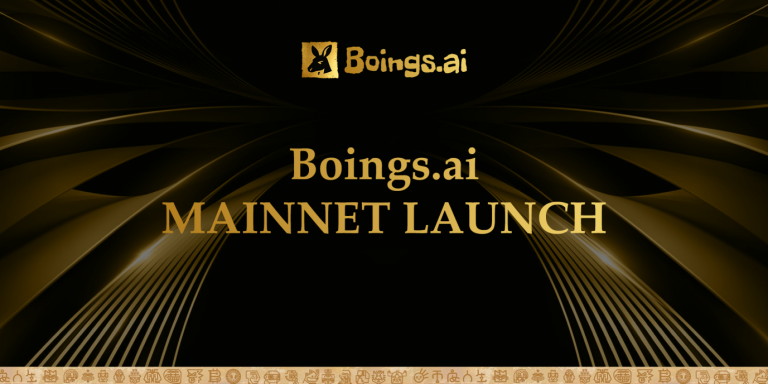With the rapid advancement of artificial intelligence (AI), the importance of data labeling has become undeniable. As a fundamental component in training AI models, the quality of data labeling directly influences model performance. However, traditional centralized labeling methods face challenges such as inefficiency, privacy concerns, and limited data diversity, which struggle to meet the increasingly complex demands of AI. In this context, Labelfi, a Web3 initiative built on the foundation of Labelbox, emerges as a revolutionary solution. By leveraging decentralization and Web3 technologies, Labelfi aims to redefine the future of AI data labeling. This article explores Labelfi’s unique characteristics and the far-reaching impact of decentralized labeling on AI technology.
Labelfi’s Core Innovation: Redefining AI Data Labeling
1. Global User Participation: Diverse Data from Across the Globe
Labelfi breaks the geographical and centralized barriers that limit traditional labeling platforms, creating a global, decentralized labeling network. Through its decentralized structure, users from anywhere in the world can contribute to data labeling tasks.
- This extensive reach enables Labelfi to provide AI models with a wider range of data sources. For example, in multi-language text processing or cross-cultural image recognition, the platform’s global participation ensures more representative and unbiased datasets.
- Results from various labelers are aggregated, and blockchain consensus mechanisms determine the final labels’ correctness.
- Furthermore, Labelfi supports multi-modal data labeling, including images, videos, texts, and audio, providing comprehensive support for complex AI applications across industries.
2. Incentive Mechanism: A Transparent and Fair Reward System
Labelfi employs blockchain technology to design a transparent and equitable incentive model. Each task completed by a labeler is accurately recorded and rewarded with the platform’s native token.
- Transparency: All task assignments, work progress, results, and payment records are traceable on the blockchain, ensuring fairness in task distribution and reward allocation.
- Diversified Rewards: Labelers can not only earn tokens for completing tasks but also use the rewards within the platform ecosystem, whether for trade or for unlocking further platform tasks and benefits, incentivizing continuous engagement.
3. Data Privacy Protection: Decentralization Ensures Data Sovereignty
Privacy concerns have always been a challenge for traditional centralized labeling platforms, but Labelfi’s decentralized architecture and the application of Zero-Knowledge Proofs(ZKP) naturally address these issues.
- Privacy Protection:Labelers can complete labeling tasks without accessing sensitive information from the original data, and prove that their labeling results meet requirements without revealing the actual details of the labels. Moreover, data providers can validate the labeler’s work without sharing the full dataset.
- Task Verification: ZKP allows verification of whether a labeler has completed the task correctly without exposing data or label details.
- Decentralized Storage: With distributed storage technology, Labelfi minimizes the risk of single-point data breaches and protects user privacy while maintaining data integrity.
- Data Ownership: Data uploaded by users is encrypted and stored on the blockchain, ensuring that users retain control over their data.
The Advantages of Labelfi: Driving Multidimensional Development in AI
1. More Efficiency with Lower cost: Automated Task Assignment and Flexible Supply
Labelfi automates task distribution through smart contracts and adjusts labeling supply based on dynamic reward mechanisms, enabling the platform to engage millions of labelers worldwide. This significantly enhances efficiency and scalability while simultaneously reducing the cost of data annotation.
- Flexible Scaling: Tokenized rewards incentivize labelers to produce high-quality work, with payouts based on accuracy and workload. So during peak periods or large-scale demand surges, Labelfi can rapidly onboard more qualified labelers, ensuring timely task fulfillment even in high-demand situations.
- Faster Output: Traditional models rely on manual oversight and management, but Labelfi’s automation streamlines processes, greatly accelerating task completion.
2. Data Diversity and High Quality: Enhancing Model Accuracy and Fairness
Labelfi’s global participation mechanism and reward-driven model ensure a diverse and high-quality dataset for training AI systems.
- Data Diversity: In areas like natural language processing (NLP), different global users contribute diverse, language-specific data, which enhances the model’s applicability and accuracy across different regions.
- Bias Reduction: By promoting diverse perspectives in data labeling, Labelfi minimizes biases in AI models, ensuring more equitable and accurate decision-making. This is particularly crucial in sensitive applications like hiring algorithms and judicial decision systems.
3. Cost Reduction: Decentralization Optimizes Resource Allocation
Labelfi’s decentralized architecture significantly reduces the cost of data labeling.
- No Middlemen: Smart contracts automatically verify task completion without relying on centralized platforms. So by removing intermediaries, Labelfi directly connects task requesters with labelers, cutting down on overhead costs typically associated with centralized platforms.
- Low Barriers for Entry: This cost-efficient model opens the door for small businesses and individual developers to access high-quality labeled data, facilitating the widespread adoption of AI technology.
- Storage Cost Efficiency:Distributed storage networks reduce costs by spreading data across multiple nodes.
The Future Value: Labelfi’s Role in Shaping the Next Generation of AI
The significance of Labelfi goes beyond offering a high-efficiency data labeling solution; it represents a paradigm shift in AI development.
- Promoting AI Fairness: By enabling global participation, Labelfi ensures that AI models are trained on a more representative dataset, reducing bias and ensuring fairness. This is crucial for AI applications in sensitive areas like recruitment, law enforcement, and healthcare.
- Democratizing AI: Labelfi lowers the entry barrier for AI model training, allowing more developers — particularly small enterprises and individual creators — to participate in AI development. This democratization of AI technology promotes innovation and accelerates the growth of the AI ecosystem.
- Web3 Ecosystem Integration: As a decentralized platform, Labelfi does not just advance AI technology — it integrates seamlessly with Web3 technologies, including blockchain and cryptocurrencies, to create a more transparent, secure, and sustainable AI ecosystem.

Conclusion
While Labelbox and other Web2 platforms have pioneered data labeling solutions, they face limitations inherent to centralized models. By leveraging Web3 technologies such as decentralized storage, zero-knowledge proofs, and blockchain, Labelfi, a next-generation platform can bring transformative benefits:
- Enhanced data security and privacy.
- Fair and transparent reward systems.
- Greater scalability and cost efficiency.
- Community-driven governance and innovation.
Labelfi, as a decentralized AI data labeling platform, is redefining the way AI models are trained. By utilizing decentralization, blockchain technology, and Web3 innovation, Labelfi ensures a more efficient, diverse, and secure approach to data labeling. With its global user participation, transparent reward system, and strong data privacy protection, Labelfi is not only enhancing the quality of labeled data but also driving the broader AI ecosystem toward greater inclusivity, fairness, and scalability.
In the age of AI, where data is the cornerstone of technological advancement, Labelfi’s pioneering approach is poised to become a catalyst for future innovations, empowering both AI developers and users alike to unlock the full potential of artificial intelligence. As AI continues to shape the world around us, Labelfi’s role in providing high-quality, diverse, and secure data labeling will be central to driving AI forward into the next generation.


